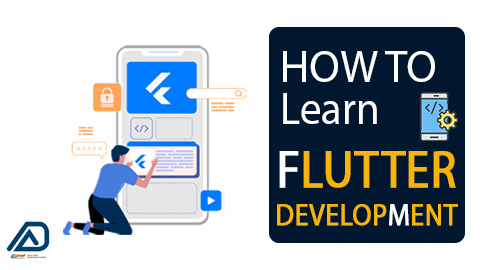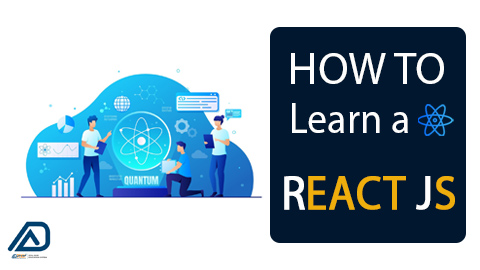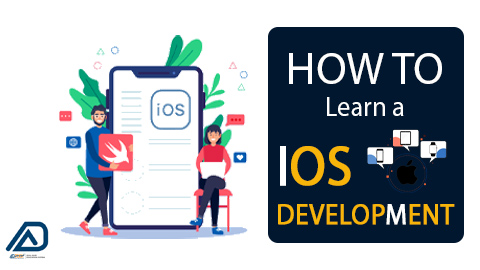Popular Topics
Android Development classes Adtech
Adtech Android app development programs
iOS Development program Adtech
Web design courses Surat
Application Development (Android)
Flutter Development
Top-rated iOS Development near me
Adtech iOS Development training
Python education near me
Application Development
Expert iOS Development classes nearby
python
iOS Development in India
Best-in-class iOS Development programs in my area
Data Science
React Native app development classes nearby
Android Development
iOS Development courses at Adtech
What is iOS Development?
Learn iOS Development at Adtech
Surat website designers
Machine Learning
Flutter
full stack
Surat programming-oriented web development classes
Learn .NET in Adtech Institute
Android development workshops at Adtech
Premier iOS Development training near me
Android development classes nearby
What is Scope of Shopify in India?
Adtech Android development courses
Shopify development courses
What is React Netive Development?
Android app development courses in the vicinity
React Native
Web design training close to me
Web Development
Learn Android development in my area
Python training center in Surat
Full-Stack web development training at Adtech
Netive
iOS Development courses Surat
Learn iOS Development near me
Leading iOS Development courses nearby
liquid programming
React Netive Development in India
Python courses in Surat
Web design courses in the vicinity
becoming an iOS developer
Adtech React Native development courses
React Native development training at Adtech
Surat Full-Stack web development courses
Adtech web design courses
Adtech React Native development workshops
iOS Development classes Adtech
Web design classes nearby
Adtech Full-Stack web development courses
Application Development (Flutter)
Full-Stack web development classes Adtech
Best Full-Stack web development training Surat
E-commerce platform
Surat web design services
Learn web design at Adtech
Application Android
Best Python training in Surat
Full-Stack web development institutes in Surat
Best web design company Surat
What is Python?
Back-end Development
cross-platform development
Android development training close to me
Web design institutes nearby
Full-Stack programming courses Surat
Web design classes Adtech
Front-end Development
Python courses nearby
Shopify Development
Top Python courses in Surat
Web design training in Surat
React Native development classes Adtech
Local React Native development workshops
React Native application training close to me
Learn Full-Stack web development at Adtech
Local Android development workshops
Learn web development
Why Python Language is Important?
creating application
Adtech web design workshops
What is Shopify?
Android development courses nearby
Best Android development training at Adtech
Learn Python classes nearby
Python institute in my area
Web design training at Adtech
Leading Python classes in Surat
Adtech Full-Stack web development workshops
Android development institutes nearby
iOS Development classes in near me
Learn React Native development in my area
Learn React Native development at Adtech
React Native development institutes nearby
Shopify training at Adtech
Learn Shopify in my area
Popular Instructors
All Programing Oriented Courses
Shopify Development
What is Shopify? Shopify is an e-commerce platform that allows …
What you'll learn
Store setup: Learn how to create and customize Shopify stores using themes, templates, and design tools to create visually appealing and user-friendly storefronts.
Product management: Gain knowledge on adding and organizing products, including product descriptions, images, variants, and pricing, to effectively showcase merchandise to customers.
Payment processing: Understand how to set up payment gateways, configure shipping options, and manage taxes to facilitate seamless transactions and order fulfillment.
Order management: Learn how to process orders, manage inventory levels, and fulfill customer orders efficiently to ensure timely delivery and customer satisfaction.
Marketing and sales: Explore strategies for driving traffic to your Shopify store, including search engine optimization (SEO), social media marketing, email marketing, and paid advertising campaigns to attract and retain customers.
Customer engagement: Discover techniques for engaging with customers through personalized experiences, including customer support, live chat, email newsletters, and loyalty programs, to build lasting relationships and drive repeat business.
Analytics and insights: Utilize Shopify's built-in analytics tools to track store performance, monitor sales trends, and gain actionable insights into customer behavior to optimize marketing efforts and improve overall business operations.
App integration: Learn how to leverage Shopify's extensive app ecosystem to extend the functionality of your store, including apps for inventory management, marketing automation, analytics, and more, to enhance the customer experience and streamline operations.
.NET Development
What is .NET? .NET is a software development framework developed …
What you'll learn
Programming languages: .NET supports multiple programming languages such as C#, Visual Basic, allowing you to choose the language that best fits your project requirements.
NET Framework: Learn about the core components and libraries provided by the .NET Framework for building applications.
.NET Core: Gain knowledge of .NET Core, which is a cross-platform and open-source version of .NET that enables you to build applications that can run on Windows, Linux, and macOS.
Entity Framework: Learn about Entity Framework for object-relational mapping (ORM) and database access in .NET applications, simplifying data access and management tasks.
What you'll learn
Growth of Online Businesses: The rise of e-commerce and the digital transformation of businesses have led to an increased demand for professional web design services.
Startups and Entrepreneurship: India has seen a surge in startups and entrepreneurial ventures, many of which require well-designed websites to establish an online presence.
Web Design Agencies: Numerous web design agencies and studios have emerged in major Indian cities, offering a wide range of design services, including website development, UI/UX design, and e-commerce design.
UI/UX Design Focus: User interface (UI) and user experience (UX) design have become integral to web design in India, as businesses and organizations recognize the importance of providing intuitive and user-friendly online experiences.
Responsive Design: With the increasing use of mobile devices, responsive web design is a crucial aspect of web development in India, ensuring websites function effectively across various screen sizes.
Outsourcing Hub: India is a popular outsourcing destination for international clients seeking cost-effective and high-quality web design services.
Freelancers and Independent Designers: A growing number of freelance web designers operate in India, offering their expertise to clients both locally and globally.
Remote Work Opportunities: Many Indian web designers have embraced remote work, collaborating with clients and agencies from around the world.
What you'll learn
JavaScript: A strong foundation in JavaScript is essential. You'll need to understand the language, its syntax, data structures, and concepts like variables, functions, and asynchronous programming.
React: React is a JavaScript library for building user interfaces. You'll need to become proficient in React to create the UI components for your mobile app. This includes understanding React's component-based architecture and state management.
React Native Fundamentals: Learn the basics of React Native, including how to set up a development environment, create a new project, and structure your code. You'll also learn about JSX (a syntax extension for JavaScript used with React), component lifecycle methods, and state management.
Navigation: Mobile apps often have complex navigation structures. React Navigation is a popular library for implementing navigation in React Native apps. You'll learn how to create different types of navigation stacks, tabs, and drawers.
Styling: You'll learn how to style your components using the built-in styles, as well as libraries like StyleSheet, which help you create responsive and platform-specific designs.
Data Management: You'll need to understand how to fetch and manage data in your app. This may involve making API calls, handling data storage, and using state management libraries like Redux or MobX.
Web Development (Full-Stack)
What is Web Development? web development is the process of …
What you'll learn
Understanding Web Fundamentals
Mastering Front-end Development
Exploring Back-end Development
Version Control and Collaboration
Database Management
Responsive and Mobile Design
What you'll learn
Learn the Basics of Swift: Swift is the primary programming language for iOS development. Your first objective should be to understand its syntax, data types, and basic programming constructs.
Understand UIKit: UIKit is a fundamental framework for building iOS user interfaces. Learn how to create views, buttons, labels, and other UI elements, and how to use Interface Builder to design app layouts.
Master Xcode: Familiarize yourself with the Xcode integrated development environment (IDE), which is essential for iOS app development. Learn how to navigate the IDE, create and manage projects, and utilize its debugging and testing tools.
App Lifecycle: Gain a deep understanding of the iOS app lifecycle, including how apps launch, run, enter the background, and terminate. Learn how to handle various app states effectively.
Navigation and Storyboards: Learn to use storyboards to design app navigation and interfaces, including how to implement navigation controllers, tab bar controllers, and segues.
Table Views: Master table views and understand how to display lists of data in iOS apps. Learn how to populate and customize table view cells.
User Authentication: Learn how to implement user authentication and authorization in your apps. This might include email/password logins, social media logins, or other authentication methods.
Networking and APIs: Learn how to make network requests and handle data from web services and APIs. Familiarize yourself with URLSession and JSON parsing.
Debugging and Testing: Develop skills in debugging and testing your iOS apps. Learn how to identify and fix bugs and optimize your code.
Performance Optimization: Understand how to optimize your app's performance, including reducing memory usage, optimizing code, and improving user experience.
What you'll learn
Basic Syntax and Programming Concepts: You'll start with the fundamentals, including variables, data types (integers, floats, strings, etc.), operators, control structures (if statements, loops), and function.
Functions and Modules: Explore how to define and call functions, pass arguments, and return values. You'll also learn about Python modules and how to create your own modules for code organization.
Object-Oriented Programming (OOP): Understand the principles of OOP in Python, including classes, objects, inheritance, encapsulation, and polymorphism.
Exception Handling: Learn how to handle exceptions and errors gracefully in Python using try-except blocks and custom exception classes.
Input and Output (I/O): Understand standard input and output in Python, as well as file I/O. Learn how to format and display output effectively.
File Handling: Explore reading from and writing to files, including text files and binary files. Work with file objects to manipulate file data.
Flutter Development
What is Flutter Development? Flutter is an open-source UI (User …
What you'll learn
arning objectives in Flutter are concise statements that outline what you aim to achieve while learning Flutter development. These objectives guide your learning process and help you focus on key skills and knowledge areas. Here's a short note on common learning objectives in Flutter
Flutter Fundamentals: Understand the core concepts of Flutter, including widgets, layouts, and UI components.
Dart Programming: Learn the Dart programming language, which is essential for Flutter development.
User Interface Design: Master designing user interfaces with Flutter widgets, understanding layout principles, and creating responsive designs.
State Management: Explore various state management techniques and choose the right one for your app's complexity.
Navigation: Implement navigation and routing between screens in your Flutter app.
Data Handling: Work with data sources, APIs, and databases to fetch and display information in your app.
Flutter Animation: Create engaging animations and transitions to enhance user experience.
Testing and Debugging: Write tests to ensure the reliability of your app and troubleshoot issues effectively.
Platform-specific Features: Learn to integrate platform-specific features and plugins for Android and iOS.
App Deployment: Understand the app packaging and publishing process for Google Play Store and Apple App Store.
Performance Optimization: Optimize your Flutter app for better performance and responsiveness.
Continuous Learning: Stay updated with Flutter's evolving ecosystem, explore new packages, and engage with the community.
Real-world Projects: Apply your skills to build practical Flutter apps, gaining hands-on experience.
Open-source Contribution: Contribute to open-source Flutter projects to deepen your understanding and collaborate with the community.
Problem Solving: Develop the ability to solve common issues and challenges in Flutter development.
- 1
- 2








